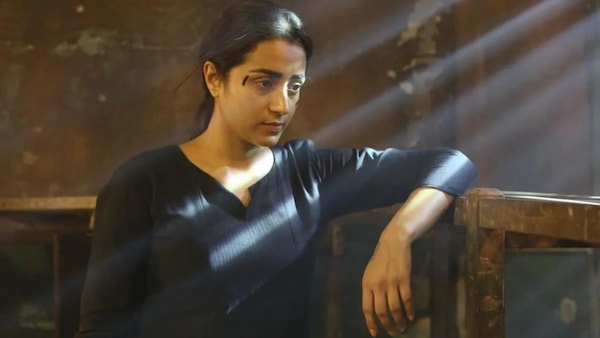The Road Review: A Couple Of Solid Twists On This Eerie Journey
The Road director Arun Vaseegaran avoids the usual pitfalls of a heroine-led movie and writes a solid antagonist with a backstory. Subha J Rao reviews.

Last Updated: 04.43 PM, Oct 06, 2023
THERE’s a cardinal rule in commercial filmmaking — if you want your protagonist to shine, write an antagonist worth their time and effort. If it is a female protagonist, invest some more time, so that no conflict appears too easy, too contrived. Arun has learnt that lesson well.
So, you understand why Meera (an effective Trisha, who as always aces those small reactions that flit across her face) goes after the people who bring her life to a grinding halt. Arun creates in writer-researcher Meera a loving wife to Anand (a pleasant Santhosh Pratap), and mother to Kawin. Even if some of the mother-son interactions seem cheesy, they don’t irritate you. You feel the love Meera has for her wildlife photographer husband, and the chemistry they share. And you just know that she will go out and look for answers.
Arun, however, invests a lot in selling you lecturer Maya (a lovely, lovely Shabeer whose graceful movements still remind you of Sarpatta Parambarai’s Dancing Rose). A youth from an agrarian background is wrongly accused by a student of sexual harassment and sacked, and every single door closes. When he finally decides to end it all, a new path he never meant to step into opens up. That path turns out to be a death knell for those targeted and innocent passersby who are collateral damage. You feel empathy for what Maya once was and what he lost. But that vanishes the minute you figure what he does.
Kudos to Arun for not glorifying or demonising any character. Everyone does what they do because of their circumstances and he does not stand in judgement. Neither do you. However, on the flipside, you don’t invest enough in people and there’s little space for emotions. It’s a cold, dark world out there.
While you understand why Meera goes after those responsible for her family’s death, Arun falters in giving her an air-tight reason to escape from every attack she faces. Meera is fragile, not particularly the martial arts kind, and even if she takes some blows (you flinch when she’s hit on the stomach) and gets choked, she ultimately knows to strike back.
Even if you buy everything else the film tells you to, you wonder why two women friends (Mia George is as effective as she always is) would saunter into a place known to be dangerous without letting anyone know or taking help along. And, why would a constable (the late MS Bhaskar) accompany a woman who is out to investigate something sinister, without letting his boss know?
Semmalar Annam, a fabulous actor who plays the head of a roadside dacoit gang in this film, needs better roles other than those that force her into a zone where she’s either an underprivileged person or someone who revels in the dark zone.

Despite all of this, the film does stay engaging and that’s because Arun keeps a tight leash on the proceedings. The film deals with something we have always heard of, and possibly never thought much about. Road accidents where entire families or marriage parties perish, accidents where the jewellery and money in a vehicle go missing. Steady drivers losing control of their vehicles. The Road shows you what might have happened. It focuses the spotlight on those left behind with no answers — it is also a commentary on how the cops sometimes turn a blind eye to what might have happened in favour of dealing with what’s in front of them and closing a case.
The Road is, by far, Trisha’s best outing in a heroine-led movie, because it does not turn her into a superwoman who can do no wrong. Instead, her vulnerability and ability to connect the dots saves her skin more than once.
I’m quite looking forward to seeing how Shabeer is used by the industry going forward. He has great screen presence, and can be subtle and full of swag.
The movie flits between day and night and is set in not-very-picturesque terrain, captured well by KG Venkatesh. The rocks and arid region tell a story of their own. As does Sam CS’ background score, which lets silence speak too.
Arun throws in some details that are telling: For instance, Maya weeps on a milekal (milestone) with the name of the village Nesanadhi (river of love) — soon after unfairly becoming the object of many people’s hate!
The movie, edited by AR Sivaraj, is also a warning. That people who’ve been pushed to the wall can swing either way, and when they choose the wrong path, there’s no stopping them. Once they smell money, that road can lead to literal hell. For others.

 Premium
Premium